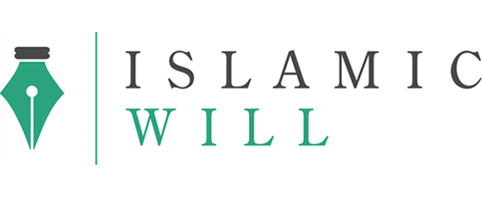Why you should make a Will?
If you want to be sure your wishes will be met after you die, then it is vital you prepare a Will. It is an obligation upon every adult Muslim to prepare a will to clear their debts and distribute their inheritance correctly. Here are some reasons why it's important to make a will.
1. Peace of mind
A will is the only way to make sure your savings and possessions (your estate) go to the people and causes that you care about. The Prophet, peace be upon him, refused to pray the funeral prayer over anyone who had outstanding debts which were not cleared and clearly emphasised the importance of not allowing a day to pass without having a Will prepared.
2. Avoiding disputes between relatives
Disputes over inheritance are a common cause for arguments and resentment among family members. Leaving a Will should remove any doubt about your wishes and who you want to leave your estate to.
3. Looking after your loved ones
If you die without leaving a Will, you have no influence over how your possessions are distributed and who should be the guardian of your children. If you don't specify a guardian, a court will have to appoint a guardian.
With a Will, you can make financial arrangements for your children if they are aged below 18 at the date of your death, as well as appointing a guardian to look after them.
4. Saving on Inheritance Tax
With a carefully planned Will, you can make sure you don't pay more Inheritance Tax than you need to.
5. Your funeral and buriald
Your Will can be a way to let people know how you would prefer to be buried and indicate your preference for a non-intrusive autopsy (which is essential in Islam) should the need arise.
6. Leaving a legacy which gains ongoing reward
You can specify a gift to a charity of your choice for a charitable initiative which continues gaining reward (sadaqa jariyyah) even after your death. This may go towards building a water well, planting trees, funding a masjid or donating a wheelchair at the hospital.
Appointing executors
An Executor carries out the instructions you have specified in your Will when you die. This is a big responsibility so it's important to choose your Executor carefully.
When you die, your chosen Executor(s) will pay your debts and close your accounts. They are usually also appointed as trustees of your assets if you have requested distribution via a trust.
Anyone over the age of 18 can be an executor. You could choose family, friends or a professional such as a solicitor, accountant or bank.
It’s a good idea to choose two Executors in case one of them dies before you do. Above all you must choose somebody you trust. It’s going to be up to them to follow the instructions in your will and to find fair solutions to any disagreements.
Gifts for beneficiaries
When drawing up a Will, you can make three types of gifts to your specified beneficiaries:
1. Specific Gifts
Specific Gifts of items e.g. giving your car to your son.
2. Pecuniary Gifts
Pecuniary Gifts of money e.g. giving £100 to your nephews or money to a charity. The maximum gift of money you can leave to a person is £100,000.
3. Residuary Gifts
Residuary Gifts of what is left after all outstanding debts and specific or monetary gifts have been distributed. This ensures that your remaining estate passes to your chosen beneficiaries rather than being subject to the intestacy rules, which occur if someone dies without making a Will.
If you have young children and they are named as beneficiaries, the funds will be held on trust by your executors/trustees until they reach a certain age (usually between 18 and 25).
Updating your Will
We recommend reviewing your Will on a regular basis, as we all know that circumstances can change. For example, you may have a child, get married or buy something of value. These changes can invalidate your Will.
With the Islamic Will subscription service, you can log in at any time and update your details to print off another Will in minutes.
COMMON MISTAKES
From our experience, there are a number of mistakes which people make when preparing a Will. These include:
- Not being aware of the requirements needed to make a Will legally valid. We have undertaken all the necessary research both in legal and Islamic matters so you don’t have to worry about this.
- Failing to take account of all the money and property you are responsible for. Our Will Creation process provides a checklist of the key assets you need to consider.
- Failing to take account of the possibility that a beneficiary may die before the person making the Will. We provide guidance throughout the process of preparing your Will online so that you can minimise this risk.
- Changes which need to be made to the will. If these alterations are not signed and witnessed, the Will document can be invalidated. With the Islamic Wills subscription service, you can make unlimited edits to your personal details so that you don’t have to worry about costly fees when you need to update your Will. We also have a handy reminder service so that you don’t forget to review the document.
- Being unaware of the effect of marriage, separation or divorce on the Will. Our online guides and legal advisors can provide professional guidelines on how to deal with matters like this.
- Being unaware of the rules which exist to enable dependants to claim from the estate if they believe they are not adequately provided for. These rules mean that the provisions in the will could be overturned.
THE WILL MAKING PROCESS
1. APPOINT EXECUTOR(S)
You will need to find someone to ensure that your estate is divided up as specified in your will. This person is called the Executor or Executrix of the estate. This person must be someone in good health, of sound mind, honest, trustworthy, and of course a good Muslim. Find at least three people for this job. They should be younger and at least one of the selected people should be outside the family circle. This is so that if there is a family tragedy where members of the same family die together, at least someone else is present to execute the will.
2. SELECT TWO WITNESSES
Find two witnesses to your will. These are people who will witness the signing of the will so that in case there is any question that you wrote it after your death, you will have people to testify that you did indeed write this will and that you were in a sound state of mind when you did this.
Witnesses cannot be people entitled to inherit, so most family members are disqualified from this responsibility. The pool of witnesses has to be from friends and those who are not family members. This would also exclude extended family.
3. ISLAMIC GUIDANCE
We can provide you with advice on how your inheritance will be distributed Islamically based on the Quranic guidance and Prophetic example.
This means no cremation, no casket, proper Ghusl before burial, etc. It should also be mentioned that you want a Janaza prayer at a masjid as soon after your death as possible, and your body must be buried at a Muslim cemetery according to the Sunnah.
You can also put in a clause that you don't want an autopsy done on your body unless it is legally required. There are options in the UK for use of MRI scans to establish the cause of death and you can state this as a requirement in your will so that the Coroner can consider the viability of a non-intrusive autopsy.
4. THE GUARDIANSHIP OF YOUR CHILDREN
If you have children that are under 18 (the UK age of majority, then you have to appoint a guardian. In this case, state in your will that the executor must consult an Islamic scholar to decide who this person will be, as it depends on which of the qualified family members are alive and able to be guardians at the time.
5. ASSESS YOUR ESTATE VALUE
Your estate includes property, land (in the UK or abroad), cash, stocks and shares and valuables, for example, jewellery or memorabilia. The estate also includes any outstanding debts such as credit card debts, a mortgage or equity release. This also includes all gifts (money, property, assets) made up to seven years prior to death. These items should be noted in the will.
Remember to put aside some money for your burial costs which can cost in the region of £3000 in the UK.
If you wish to donate a part of your estate to an Islamic charity this can be included in the will. However, Islamically one should not donate more than one-third of the estate to charity.
Once you have done the above, you can start writing your will.
6. Step Six
Put the original copy of your will in a safety deposit box. Give copies of the will to its executors. Make sure the executors know in which bank, for instance, your safety deposit box is located. Check with the bank about the conditions of your executors accessing your safety deposit box in the case of death.
https://www.gov.uk/paying-inheritance-tax
Add all the values together to get the total value of assets and gifts and take away any debts or liabilities. Although these are not values are not written into your will, they will give you an idea of your potential inheritance value.

